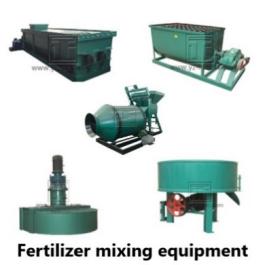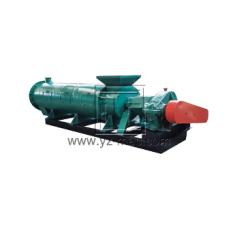Roll Extrusion Granulator
The roll extrusion granulator is an advanced piece of equipment used for transforming organic materials into high-quality granules. This innovative machine utilizes the principle of extrusion to compress and shape organic matter into uniform granules, making it an essential tool in the organic fertilizer production process.
Working Principle:
The roll extrusion granulator operates by squeezing and forming organic materials between two counter-rotating rollers. As the material passes through the gap between the rollers, the pressure exerted causes the particles to compact and adhere together, forming uniform granules. The size and shape of the granules can be controlled by adjusting the gap between the rollers and the speed of rotation.
Advantages of Roll Extrusion Granulator:
High Granulation Efficiency: The roll extrusion granulator ensures a high degree of granulation efficiency due to the continuous and uniform pressure applied during the extrusion process. This results in granules with consistent size and density, optimizing the effectiveness of organic fertilizer applications.
Improved Nutrient Availability: The extrusion process of the roll granulator promotes the breakdown of organic materials and enhances the release of nutrients. The compacted granules provide a controlled release of nutrients over time, ensuring a steady and sustained nutrient supply to plants.
Customizable Granule Characteristics: The roll extrusion granulator allows for easy adjustment of the gap between the rollers, enabling the production of granules with different sizes and shapes. This versatility ensures compatibility with various crop requirements and specific fertilizer application methods.
Enhanced Organic Matter Utilization: By converting organic materials into granules, the roll extrusion granulator improves the handling, storage, and transportation of organic fertilizers. The granules have reduced moisture content and increased stability, minimizing losses and maximizing the utilization of organic matter.
Applications of Roll Extrusion Granulator:
Organic Fertilizer Production: The roll extrusion granulator is widely used in the production of organic fertilizers. It efficiently processes organic materials such as livestock manure, crop residues, kitchen waste, and green waste, transforming them into valuable organic fertilizer granules.
Crop Nutrient Management: The uniform granules produced by the roll extrusion granulator provide an effective means of delivering essential nutrients to crops. These granules can be applied directly to the soil or incorporated into a compound fertilizer blend to ensure balanced nutrition for plants.
Soil Improvement and Sustainability: Organic fertilizer granules produced by the roll extrusion granulator contribute to soil improvement and long-term sustainability. The gradual release of nutrients from the granules enhances soil fertility, improves soil structure, promotes microbial activity, and reduces the risk of nutrient leaching and environmental pollution.
Agriculture and Horticulture: The roll extrusion granulator is utilized in agriculture and horticulture for various applications. It provides an efficient method of producing organic fertilizer granules tailored to specific crop requirements, helping to improve soil health, increase crop productivity, and promote sustainable agricultural practices.
The roll extrusion granulator is a highly efficient and versatile machine for producing high-quality organic fertilizer granules. With its ability to transform organic materials into uniform and customizable granules, this equipment revolutionizes the organic fertilizer production process. Its advantages include high granulation efficiency, improved nutrient availability, customizable granule characteristics, and enhanced organic matter utilization. The roll extrusion granulator finds applications in organic fertilizer production, crop nutrient management, soil improvement, and sustainable agriculture. By utilizing the roll extrusion granulator, fertilizer manufacturers can maximize the value of organic materials, promote nutrient cycling, and contribute to environmentally friendly agricultural practices.





